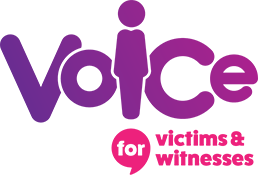Attacks, abuse and violence – 16 plus
Being assaulted or abused can affect you in many different ways. As well as causing cuts and bruises it can also leave you feeling upset, worried, confused and angry
What is assault?
Assault includes things like being pushed, shoved, punched or kicked, and can even involve weapons, for example if someone hits you with something.
Assault can happen anywhere – at home, at school, in the street or in the park – and often the person knows the person who attacks them. Sometimes an assault can be carried out by a gang of people.
What should I do if I’m being assaulted?
- Get free. The number one thing you need to do is get free so that you can get safe. Focus on the best way to free yourself – this might mean shouting loudly for help attention or hitting out at your attacker to throw them off guard.
- Get safe. Once you’re free, run as far away as possible and to the nearest adult or person you trust. Then call the police and the adult you trust the most.
What should I do after an assault?
It’s important that you tell someone what has happened, so they can help. There are lots of different people you can speak to:
- an adult you can trust – this could include a teacher, a family member, youth worker or support worker. Tell them what’s happened, and ask for their help and advice; or
- Voice – were here to help you, no matter what has happened. It is free to talk to us and we don’t have to tell anyone if you don’t want us to;
Call the police and make a report
The sooner you get to the police station, the more information you will remember and the more likely it will be that the police will find the people who have assaulted you. The police will also be able to take pictures of your injuries to have as evidence.
Get medical help
Injuries will always heal quickest and best with the help of medical professionals – ask an adult you trust to take you to the hospital to get anything seen to by a doctor or nurse.
NEVER:
- try to get revenge. This will only make things worse and can result in you being hurt even more. You can also get into trouble with the police, too;
- drop the charges. Often the person who committed the assault will try to get you to drop the criminal charges – especially if you know your attacker. If you do drop charges, your attacker will go on to assault someone else.
Even if the person who assaults you is a friend, girlfriend/boyfriend or family member, it is never ok to be assaulted and you must report it.
Who can I speak to who will help?
- an adult you can trust – this could include a teacher, a family member, youth worker or support worker. Tell them what’s happened, and ask for their help and advice;
- Voice – we’re here to help you, no matter what has happened. It is free to talk to us and we don’t have to tell anyone if you don’t want us to; or
- the police – always call 999 in an emergency. If you want to speak to the police any other time, you can call 101.
